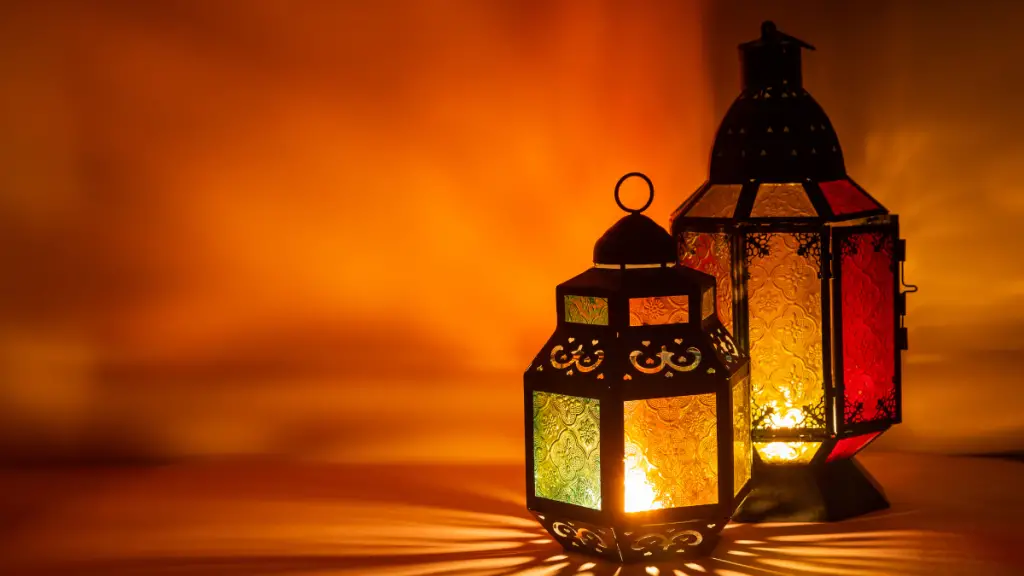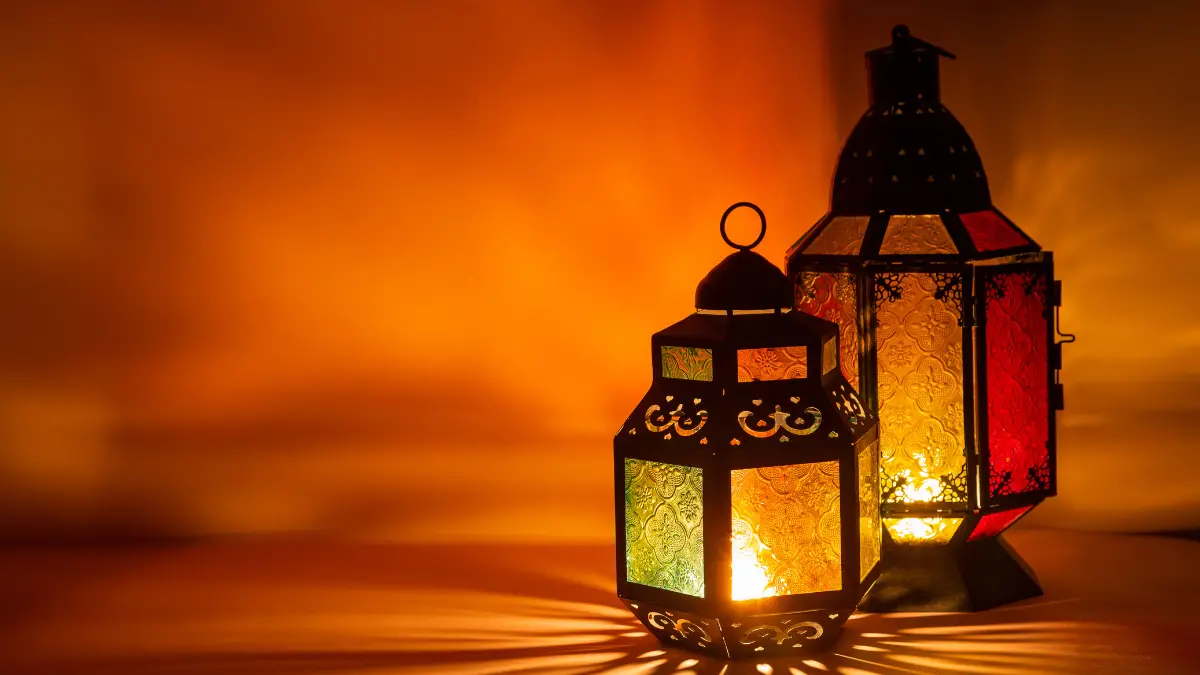Ramadan is a sacred month in the Islamic lunar calendar. It is the ninth of twelve months. It is the month in which the Muslim Holy scripture, ‘The Quran’, was revealed. Due to this, Muslims observe a whole month of abstinence from food, water, and bad habits. Fasting takes place from the time of sunrise (Suhr) to sunset (Iftar). During Iftar, a fast is considered completed as long as the terms of its observation are met.
The Iftar meal during Ramadan is a highly festive occasion in most Muslim homes. Iftar time is the moment following sunset when Muslims are considered to have completed their fast. Iftar is realized immediately after the call to sunset prayer or Maghrib. Edible items to break the fast typically consist of dates, water, or fruits.
Following the consumption of dates and fruits, Muslims perform the Maghrib prayer. Afterward, they engage in eating and drinking, mostly of various local and modern delicacies like Moi moi, Pap, Yam balls, fruit salads, fried potatoes, and a variety of other items that may fall on the menu. Generally, iftar meals are usually better in execution and diversity than normal meals.
The elevated consumption of delicious delicacies during the month of Ramadan in households of diverse economic classes is fast becoming part of the Muslim culture. In some cases, it serves as a motivation for children to participate in the fast. For others, they perceive it to be a befitting reward after 14 hours of abstinence from eating and drinking.

For the women folk, it is common to see them busy preparing Ramadan Food timetables and food classes, all in anticipation of the sacred month. For lovers, it is a time of offering gifts in the form of ‘Ramadan baskets’ to their loved ones. This gift package usually consists of food provisions and Ramadan essentials such as a praying mat, Quran, Jilbabs, and sometimes fabrics in anticipation of the ‘Eid Ul Fitr’ celebration.
Anticipating an increase in demand for varieties of foodstuff and other Ramadan essentials, it is not uncommon to see wholesale and retail marketers in Nigeria artificially increase the prices of their commodities, initiating a fortnight to the Ramadan moon sighting. They do this knowing customers will be hard-pressed to buy due to the onset of the Ramadan festive season.
This year, the dilemma of the customary Ramadan inflation is multiplied threefold. It will be the first time Nigerians will observe a period without petrol subsidies, Pre Ramadan-hiked food prices, and increasing devaluation of the nation’s currency.
Nigeria is currently facing an inflation crisis in not only the prices of foodstuff but every other essential commodity and service as well. The inflation figure is put at 22% by The National Bureau of Statistics (NBS) for the Q4 of 2023. The standard of living is exceedingly high and people are struggling to feed and survive. Now, the Ramadan season is on and the question on some people’s lips is how they can navigate the season as best as they can, even if it means subtly boycotting their accustomed luxuries.
The Ramadan of 2024 for Nigerian Muslims is prophesied to be the toughest ever experienced. Despite that, believers remain hopeful it will also be accompanied by relief and mercy, owing to its albeit greatness. After all, the month is first and foremost a month of spiritual devotion and worship. One special night in Ramadan is also reported in the Muslim scripture to be solely greater than a thousand months. Therefore its relief is anticipated to be in equal magnitude.
Tips to cut-cost during this Inflation in Ramadan
In the spirit of Ramadan, ways to cut costs and maximize its potential financially for those seeking alternatives are highlighted as follows:
1. Cut on Date Rations
Eating a date is an essential part of Iftar and perhaps the most important item on the spiritual menu.
Eating the dates in odd numbers is recommended as in one piece, three pieces, five pieces, seven pieces…
For a large family, going back an odd number or two in the sequence when consuming dates is a great way to manage the inflated price of dates in the market.
2. Prioritize buying and processing grains yourself
Grains are one of the cheapest food items in the Nigerian food market. The endless permutations of possibilities one can achieve with grains are overwhelming.
You can use millet, wheat, sorghum, tiger nut, soybeans and more to make pap, dumplings, swallows, and drinks. Recognizing this, some food vendors or entrepreneurs buy and process these grains wholesale and sell to customers at maximized profits.
The advantage of procuring processed or finished grain products is that it saves you time and energy. However, handling these nutrient-packed raw materials yourself will give you additional value for your money.
3. Try these Simple Food Substitutes using Grains
As pointed out earlier. grains are nutrient-packed and can be used to create a variety of food and drink substitutions including swallows and dumplings.
Rice swallow (Tuwon Shinkafa) is usually an essential food for the start of the fast at the Suhr time. For most people, eating tuwo for suhr proves to be very fulfilling and many households have adopted the dish.
Indeed, Tuwo has proven to last longer than other fancy food choices. Unfortunately, The rice popularly used for cooking tuwo has risen tremendously and many people may no longer be able to afford it. Substituting rice swallow shinkafa with Maize, millet or wheat swallow might be a good change.
Likewise, grains like cassava beans, millet, and wheat are processed domestically for dumplings give a delicious and cheaper alternative to using All-purpose Flour, a product now priced like golddust.
4. Use Dry Pepper and Tomato as Alternatives to Fresh Ones.
Pepper and tomatoes are used in cooking almost all manners of food in Nigeria. It is without doubt that fresh ones are tastier but like other food and non-food items, they are now sold at ridiculously high prices.
No doubt replacing fresh peppers and tomatoes with dry ones which are cheaper and in lesser demand is a great way of maneuvering around the rocketing prices of the fresh ones.
5. Coal and Electric cookers are less expensive cooking fuels at the moment.
If you are enjoying an unmetered electricity bill, an electric hot plate and kettle is a good investment for cooking this Ramadan season, alternative to other cooking fuels.
If your electricity consumption is billed via meter and you can’t afford the units to fuel such electrical appliances, it is advisable to use a coal stove or wire top for your meals. This is a great alternative to cooking gas, another shark in the deep blue sea of inflation.
6. Patronize Neighbourhood Tailors
Eid Ul fitr is the festival at the end of the 29 or 30 day Ramadan fast. Muslims wear new clothes. They usually sew these clothes during Ramadan or before.
Unfortunately, sewing materials from fabric linings to small accessories like zips and threads have also become very expensive. This coupled with equally inflated work charges makes sewing a new cloth a challenging feat for some people.
If you belong in the category of people who wish to only pay for services rendered, now may be the time to patronize your neighborhood tailors of high potential. Those without posh brand names, logos, and delivery fees.
It is wise as they say, to cut your coat according to your cloth.
7. What Drink can you make
As the price of sugar has leaped off the charts, tiger nut drinks will help cut down on the need for processed white sugar or brown sugar as dates and tiger nut, part of its ingredients are both sweet. This is a great alternative to the customary Zobo drink made in almost every household for the Ramadan period or during the Eid Ul fitr. It is also healthier than artificial sweeteners, which alternatively, is also a valid substitution.
8. Vegetables are healthy, affordable, and are a great garnish.
We can agree a meal looks much more appetizing when a well-prepared piece of protein is sitting atop it. It may be an egg, chicken, or fish. The presence of any of these makes one look forward to wiping off their plate. When they eventually do, the utility is maximum.
Do not despair if you can’t afford much protein to garnish your plate, vegetables are healthy, affordable, and a great garnish on days you can’t visit the butcher.
The combination of spring onions, carrots, spinach will definitely add aesthetic and nutritious value to your meals.
9. Buy Fruits You can Afford
We all grew up eating mangoes, cashew nuts, and oranges from our neighbor’s trees., which were fruits commonly found in houses with moderate to large compound spaces. Thus, fruits in this category were often in abundance and sold at fair prices.
Fruits like apples, grapes, watermelon, pineapples, and sometimes bananas however were less accessible domestically and had to be bought, making them more expensive and in a slightly posher category. Making fruit salads without including one of these is considered near to impossible.
In the year 2024, fruits in the earlier category are still more affordable than the latter,
On a tight budget this Ramadan, oranges, and mangoes, which are beginning to be in season, are your go-to option.
10. Replace Groundnut oil with Palm oil in Non-Fried foods.
The appearance and taste of palm oil in any dish is unmistakable, given its distinct flavor and texture. This can make it less or more appealing to some people
Groundnut oil on the other hand has a subtler appearance and gives a more neutral foundation for foods and sauces. However, it is more expensive than palm oil, whose price has withstood the test of inflation so far.
This Ramadan, leave the deep-fried meals for groundnut oil, take a leap of faith, and use palm oil for jollof meals, moimoi, and peppered sauces. You might find out you actually enjoy its rich flavor. After all, it has a very rich Vitamin A content and would be recommended by any ophthalmologist. By the way, so are carrots.
Conclusion
In conclusion, as Nigerian Muslims prepare for the challenging Ramadan of 2024 amidst soaring prices and economic uncertainties, the spirit of devotion and worship remains steadfast.
While the financial strains are undeniable, adopting practical cost-cutting strategies becomes paramount. From rethinking date consumption to embracing grain-based alternatives, seeking affordable clothing options, and exploring creative food substitutions, this Ramadan encourages a resilient and resourceful approach.
In the face of adversity, our shared commitment to spiritual devotion and unity can transform these challenges into opportunities for connection, gratitude, and a deeper understanding of the essence of Ramadan.
May this sacred month bring not only economic relief but also spiritual solace and blessings to all. Ameen.
Have a blessed Ramadan!








